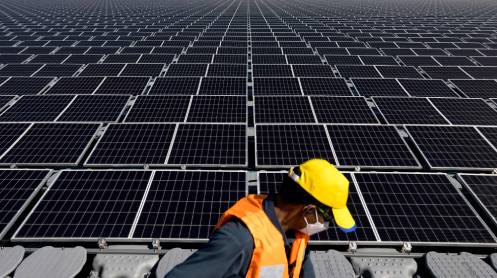LONDON, April 25 (Reuters): According to the International Energy Agency (IEA), the anticipated significant decline in battery costs for energy storage in the coming years will hasten the global shift towards renewable energy and away from fossil fuels. The IEA’s Batteries and Secure Energy Transitions report highlights the crucial role of energy storage in ensuring the reliability of renewable sources like solar and wind power.
By 2030, the total capital costs of battery storage are expected to plummet by up to 40%, making renewable energy coupled with storage systems more competitive compared to coal and gas-fired plants. IEA Executive Director Fatih Birol emphasized that the combination of solar PV and batteries is already competitive with new coal plants in India, and it will soon surpass new coal in China and gas-fired power in the United States.
The report notes that while about 90% of lithium-ion batteries are currently used in the transport sector, cheaper lithium iron phosphate (LFP) batteries are gaining traction in energy storage applications, accounting for 80% of new storage batteries last year. Additionally, the rise of sodium-ion batteries is expected to further contribute to the growth of energy storage solutions.
The global market for energy storage doubled last year, reaching over 90 gigawatt-hours (GWh), with batteries projected to drive a six-fold increase in overall energy storage capacity by 2030. This trend not only accelerates the transition to renewable energy but also promises to reduce electricity costs for millions of people without access to reliable energy sources, particularly through mini-grids with solar PV coupled with batteries.







